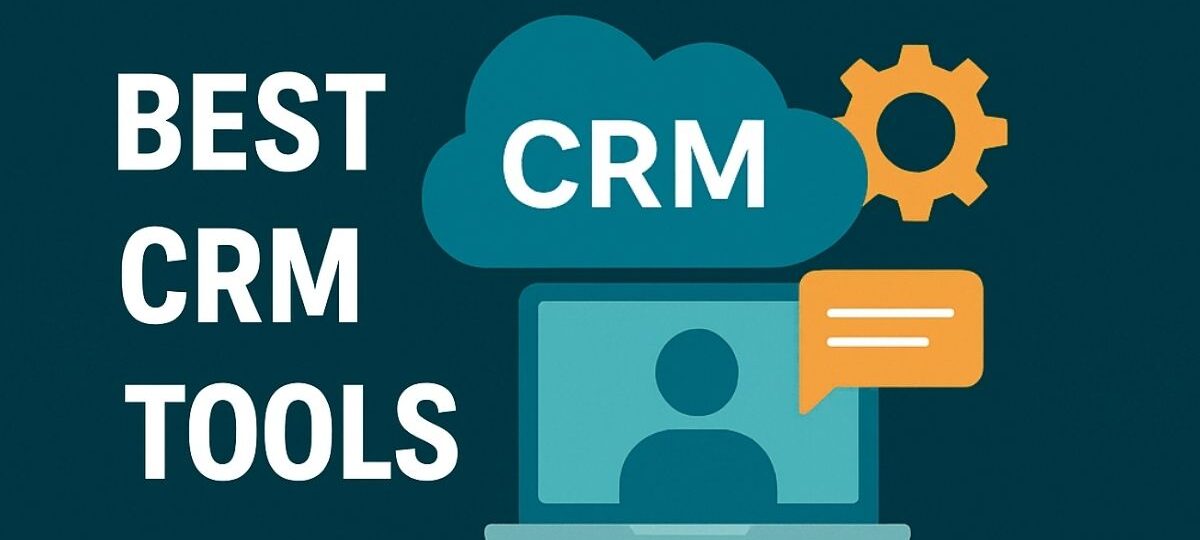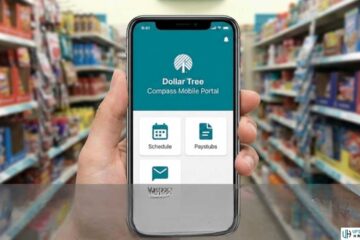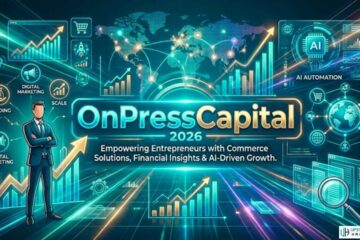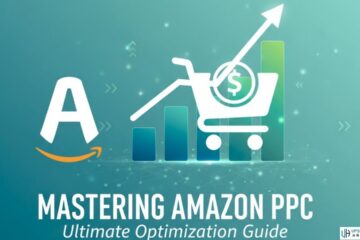Picking the right CRM in 2025? It’s like choosing your business’s secret weapon—one that manages contacts, automates leads, harnesses AI, and won’t break the bank (or brain). Today, we’re unpacking the 8 Best CRM Tools for 2025, covering everything you need—overview, features, pros, cons, pricing, and ease of use—to help you choose smartly.
What Makes a Great CRM in 2025?
AI & Automation
Today’s CRMs are not just digital rolodexes—they’re AI-powered brains. Expect features like predictive lead scoring, smart workflows, sentiment analysis, and AI agents that do the heavy lifting.
User Experience & Onboarding
Your team doesn’t want to waste hours onboarding. CRMs that combine visual pipelines, templates, and intuitive UIs make a big difference. Usability counts more than ever.
Pricing & Scalability
From free tiers to enterprise-grade solutions, CRMs must align with budget and growth ambitions. Transparent pricing and flexible plans are critical.
Top 8 CRM Tools of 2025
- Salesforce CRM – The Enterprise Powerhouse
- Zoho CRM – Your Affordable, Customizable Ally
- HubSpot CRM – The Beginner-Friendly All-Rounder
- Freshsales (Freshworks CRM) – Smart, Affordable Automation
- Pipedrive – The Sales-First, Super-Intuitive CRM
- Insightly – CRM Meets Project Management
- Workbooks CRM – Built for Sales and Finance Harmony
- Bitrix24 – The All-in-One (and Free!) Hub
1. Salesforce CRM – The Enterprise Powerhouse
Overview & Evolution
Salesforce remains the CRM behemoth in 2025—renowned for its expansive ecosystem and deep feature set. At the core: its AI-driven evolution. Agentforce, introduced in late 2024, lets businesses build autonomous AI agents that can handle tasks like marketing outreach, sales coaching, or customer service actions. It’s more than a tool—it’s a teammate, performing real work. CEO Marc Benioff revealed that AI now handles 30–50% of Salesforce’s internal tasks, spanning engineering, marketing, service, and analytics.
Features
- AI & Automation: Starting with Einstein AI, Salesforce has advanced through Agentforce, empowering generative agents and predictive workflows.
- Ecosystem & Integration: With AppExchange hosting thousands of third-party apps, expanding functionality is easy.
- Learning & Onboarding: Trailhead, Salesforce’s free learning platform since 2014, provides guided tutorials, certifications, and training.
Pricing & Considerations
- Starter Suite: $25/user/month—best for small teams, includes core Sales, Service, Marketing, and Commerce modules.
- Advanced Plans: Pro Suite (~$100/user/month) includes forecasting, campaign tools, offline mobile, and AppExchange access.
- Enterprise & Beyond: Pricing climbs steeply—Enterprise (
$165), Unlimited ($330), and Einstein 1 Sales (~$500), featuring AI, Slack integration, data unification, and sandbox environments. - Price Increase Alert: Enterprise & Unlimited editions saw a ~6% list price hike on August 1, 2025.
Pros & Cons
✔ Highly scalable, extensive integrations, cutting-edge AI capabilities—Agentforce leads the way.
— High complexity and costs; true ROI depends on implementation and user adoption.
2. Zoho CRM – Your Affordable, Customizable Ally
Overview & Evolution
Zoho CRM has expanded significantly since its 2005 launch. It now empowers businesses with AI, multichannel communication, and integration tools. In 2024, its “CRM for Everyone” update enhanced collaboration across departments. By early 2025, Zoho unveiled Zia AI agents—automating tasks and made available via the Zia Agent Marketplace.
Features & Tools
- Multichannel Interface: Supports email, social media, chat, and phone—all in one unified view.
- AI Capabilities: Zia offers sentiment analysis, anomaly detection, workflow suggestions, and now customizable AI agents.
- Extensive Suite Integration: Works seamlessly with Zoho Survey, Books, SalesIQ, Marketing Automation, and more.
Pricing Tiers (Annual billing):
| Plan | Price (Annual billing) | Highlights |
|---|---|---|
| Free | $0 (up to 3 users) | Basic contact/lead management, simple workflows |
| Standard | $14/user/month | Territory management, custom fields, web forms, reporting |
| Professional | $23/user/month | Blueprint workflows, inventory, advanced automation |
| Enterprise | $40/user/month | Zia AI assistant, portals, journey builder, advanced customization |
| Ultimate | $52/user/month | Max storage, priority support, advanced AI & analytics |
Customers praise its rich customization and scalability—one user noted it has “SO many possibilities… initially overwhelming,” while another highlighted its integration ease and automation value.
Pros & Cons
✔ Cost-effective, strong AI and automation, integrates well across Zoho apps, highly customizable.
— Steeper learning curve for teams without structured onboarding; advanced tiers required for full AI power.
3. HubSpot CRM – The Beginner-Friendly All-Rounder
Overview & Why It Stands Out
HubSpot’s CRM is often the first stop for startups and solopreneurs thanks to its robust free tier and unified approach to sales, marketing, and service tools.
Features You’ll Love
- Free Forever Tier: Includes contact, deal, and task management, email tracking/scheduling, document sharing, live chat, meeting scheduling, and quotes—no expiration, up to two users and 1,000 contacts.
- Advanced Hubs Available: Sales, Marketing, Service, CMS, Operations, and Commerce hubs—each tier (Starter, Professional, Enterprise) unlocks greater capabilities.
- Seamless Integrations: Tap into 300+ app integrations and extendability across entire workflows.
- Educational Support: Extensive training via HubSpot Academy and clear onboarding paths.
Pros & Cons
| Pros | Cons |
|---|---|
| Extremely user-friendly UI—perfect for non-tech users | Significant features locked behind higher-priced tiers |
| All-in-one platform for marketing, sales, support workflows | Pricing jumps steeply from Starter to Professional/Enterprise |
| Generous free plan—great for validating tools early | Limited customization on free plan |
Pricing at a Glance
- Free Plan: $0/month for up to two users and 1,000 contacts.
- Sales Hub Starter: ~$20/user/month; or around $45/month for two users.
- Professional Tier: $441/user/month (annual billing).
- Enterprise Tier: $1,180/user/month for Sales Hub; Marketing Hub Enterprise up to $3,300/month for 10 seats.
- Total Suite Costs: Most mid-sized businesses spend between $10,000–$50,000/year—including implementation and hubs.
Ease of Use
- New users find HubSpot intuitive and quick to adopt.
- Advanced automations still require learning and ramp-up time.
4. Freshsales (Freshworks CRM) – Smart, Affordable Automation
Overview & Positioning
Freshsales paves the way for small-to-medium teams looking for an AI-boosted CRM that won’t break the bank.
Key Capabilities
- Built-in cloud telephony and mobile app with voice-notes and live chat.
- AI forecasting and insights via Freddy AI, helping salespeople stay several steps ahead.
- Global support: 150+ currencies, multi-language support, and broad communication channels.
Pros & Cons
| Pros | Cons |
|---|---|
| Excellent entry price with free tier and affordable upgrades | Free tier lacks workflow automation and integrations |
| Comprehensive communication stack with AI enhancements | Call/chat volumes may incur extra costs above thresholds |
| Trackable activities via app, email, tasks—great visibility | No discounted pricing for larger seat counts |
Pricing Breakdown
- Free Forever Plan: Ideal for single-user startups; includes basic CRM tools.
- Growth Plan: Around $9–11/user/month—great for SMBs.
- Pro Plan: ~$39/user/month with advanced features like duplicate detection and more automation.
- Enterprise Plan: ~$59–69/user/month, offering Freddy AI, custom modules, territory management.
Ease of Use
- Clear, no-frills UI loved by small teams; fast adoption.
- Higher tiers add power at the cost of more complexity—but still manageable.
5. Pipedrive – The Sales-First, Super-Intuitive CRM
Overview & Why It Clicks
Pipedrive is tailor-made for sales teams, offering a no-nonsense, visual pipeline that cuts through clutter and gets things done. It’s built by salespeople for salespeople — you can practically feel that ethos in every click.
Key Features & Highlights
- Pipeline Magic: Customizable Kanban-style view, automated follow-ups, reminders, and forecast updates as deals move along.
- Smart Automation & AI: Includes tools like Pipedrive AI, LeadBooster, workflow automations, and one-click calling.
- Integration-Friendly: Syncs with calendars, email, and over 400 third-party apps, including Slack and Zoom.
Pros & Cons
| Pros | Cons |
|---|---|
| Remarkably easy-to-use (Ease-of-Use score: 9.2) | No free plan, marketing features can be limited |
| Attractive pricing | Reporting lacks deeper analytics (some users note) |
Pricing Overview
- Essential (Lite): ~$14/user/month (annual), $24 (monthly) — basic pipelines, deals, lead management.
- Growth (Popular): ~$29 (annual), $39 (monthly) — adds two-way email sync, templates, workflow automation, meeting scheduler.
- Advanced / Premium: ~$49–79 (annual), $64–99 (monthly) — includes AI tools, contract management, reporting, security controls.
Implementation is free for plans over ~$400/year.
Ease of Use
Exceptional—rated 9.2/10 for ease of use by BusinessNewsDaily. It’s intuitive, onboarding is quick, and support is reliable. You’ll learn it fast and feel confident
6. Insightly – CRM Meets Project Management
Overview & Sweet Spot
Insightly blends CRM with project management and automation—all wrapped in an accessible interface that balances power and ease. Great for small to mid-size businesses.
Standout Features
- AppConnect No-Code Integrations: Connect with 2,000+ apps like QuickBooks, Shopify, DocuSign. Automate workflows without code.
- Built-In Project Tools: Manage tasks, tracking, relationships, and workflows—not just leads.
- Automation & Routing: Automatically assign leads, trigger task workflows, and run internal notifications.
Pros & Cons
| Pros | Cons |
|---|---|
| Affordable scalability—pricing aligns with business growth | Support limited on free tier; higher tiers can become pricey |
| Excellent integration capabilities via AppConnect | Some users note jump between pricing tiers is steep |
Pricing at a Glance
- Plus Plan: $29/user/month (annual) — core CRM, 50 custom fields, 2 profiles.
- Professional Plan: $49/user/month (annual) — adds webhooks, AppConnect, customization.
- Enterprise Plan: $99/user/month (annual) — full suite, advanced features.
Starts with a free trial; occasionally offers bundled discounts.
Ease of Use
Moderate—a clean interface but layered functionality may take some learning. Works best with mid-sized teams looking for multifunctional flexibility.
7. Workbooks CRM – Built for Sales and Finance Harmony
Overview & Positioning
Workbooks punches above its weight when it comes to wrapping CRM with order and finance tools—adding value to B2B and process-driven workflows.
Key Features
- Customer journey mapping, territory & workflow automation, quotes, estimates, and robust reporting.
- Strong integration options and mobile app support for on-the-go teams.
- Designed for growth—reporting, automation, and sales/marketing alignment.
Pros & Cons
| Pros | Cons |
|---|---|
| Powerful for integrating CRM, sales, finance, and marketing | Higher price tiers may require more onboarding setup |
| Users appreciate standardization and effective support | Slightly steeper learning curve for non-B2B teams |
Pricing Summary
- CRM Edition: ~$30–34/user/month (annual) — core CRM functionality.
- Business Edition: ~$64–65/user/month (annual) — adds sales order, invoice, and invoice management.
- Free Trial: Typically 14–30 days; optional implementation support available.
Ease of Use
Rated very user-friendly by B2B users for standardizing processes. That said, unlocking its full power may require onboarding or tech guidance.
8. Bitrix24 – The All-in-One (and Free!) Hub
Overview & Value Proposition
Bitrix24 positions itself as a complete business workspace: CRM, project management, collaboration, and automation—all starting with a generous free tier.
Features That Shine
- Free, Unlimited Users: Includes CRM, contact center, documents, sites, mobile app, and more..
- AI-Powered Pipelines & Marketing: Automate lead flows, e-signatures, SMS/email campaigns, sales analytics.
- Collaboration Tools: Chats, video calls, file sharing, tasks, group calendars—all in one platform.
Pros & Cons
| Pros | Cons |
|---|---|
| Incredible value—free tier covers most customer needs | Interface can feel overwhelming due to breadth of tools TechRadar+1 |
| Strong automation and contact center capabilities | Paid tiers may scale pricing complexity Bitrix24klipycrm.com |
Pricing Insights
- Free Plan: Unlimited users, 5 GB storage, CRM + collaboration suite.
- Standard/Professional (August 2025 Sale): Discounted rates for 12-month plans. Specific pricing undisclosed.
- On-Premise: Base license ~$999/month; user licenses ~$99–149/user/month. Add-ons extra.
Ease of Use
Wide-ranging tools make onboarding a bit of a maze—but once learned, it’s a powerhouse. Ideal for teams ready to dive in and adapt.
Final Thoughts – Picking the Right CRM for You
- Small businesses/startups looking for easy wins: Go with HubSpot’s free tier, Freshsales, or Pipedrive for instant usability.
- Growing businesses wanting balance: Zoho CRM or Workbooks deliver flexibility and value.
- Large enterprises or Microsoft environments: Salesforce or Dynamics 365 offer unmatched scalability & integrations.
- Tech-savvy teams: Open-source options like SuiteCRM or Vtiger offer full control—and zero core cost.
Conclusion
There’s no one-size-fits-all CRM. Your best pick depends on business size, budget, tech comfort, and growth goals. Use this guide to weigh AI capabilities, onboarding ease, pricing, and scalability for 2025 and beyond.
FAQs

- Which CRM is best for tight budgets or free plans?
HubSpot, Zoho CRM (free tier for up to 3 users), and Freshsales all offer functional free or low-cost plans. - Are open-source CRMs viable for businesses without developers?
They can be—but expect steeper setup and maintenance. SuiteCRM and Vtiger shine if you have IT skills or custom needs. - How important is AI in modern CRMs?
Very—AI features like predictive scoring, automation, virtual agents, and sentiment analysis enhance efficiency and customer experience. - Will CRM prices keep rising?
At least for Salesforce, yes—Enterprise and Unlimited tiers saw a 6% increase effective August 1, 2025. - Which CRM offers the best user onboarding and support?
HubSpot is known for its rich training resources. Salesforce also provides extensive onboarding—but both make it easy to get started.
See Also: 7 Benefits of Adopting Innovation Accounting in Business Development










